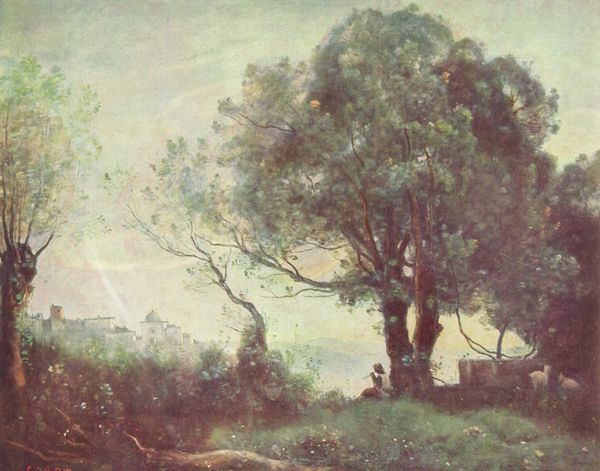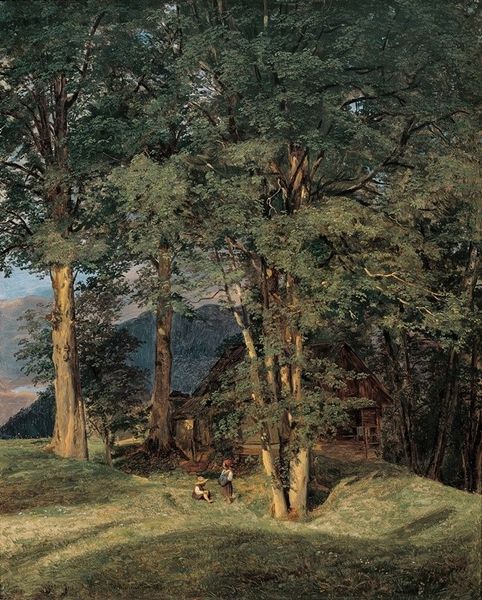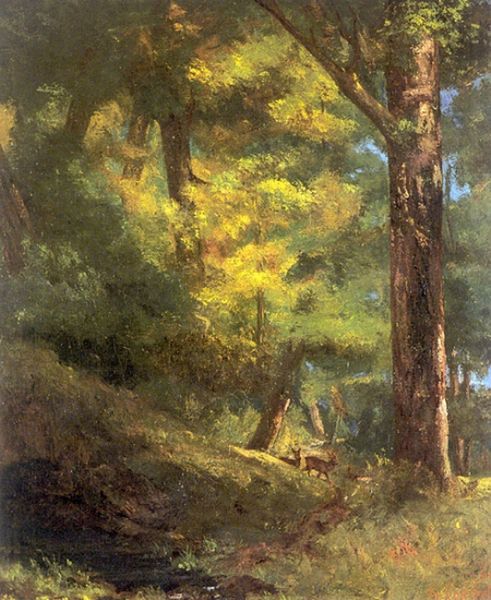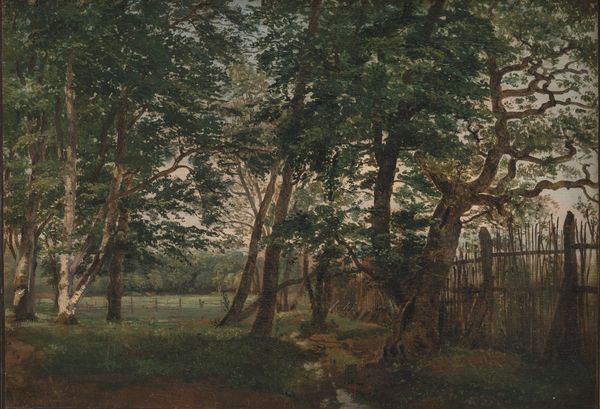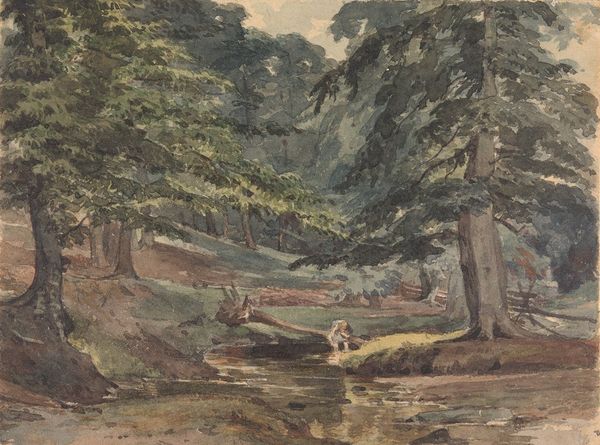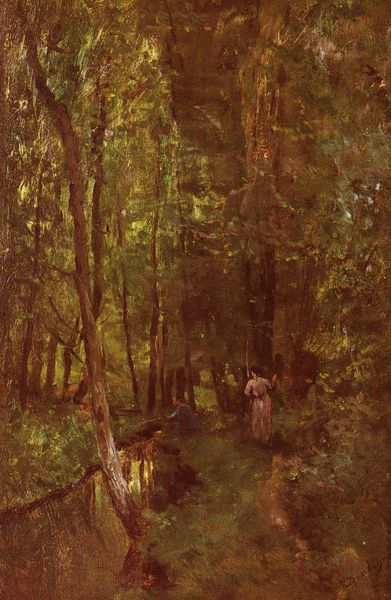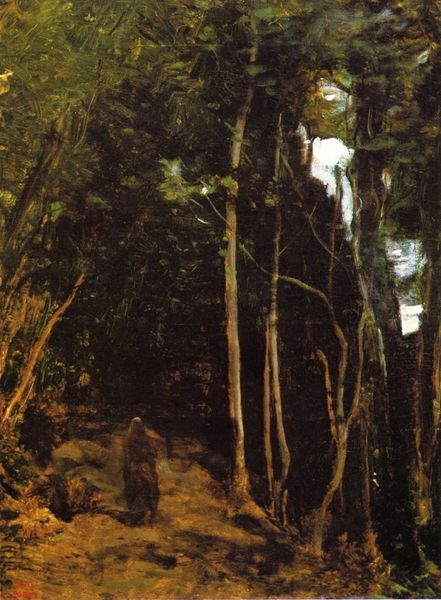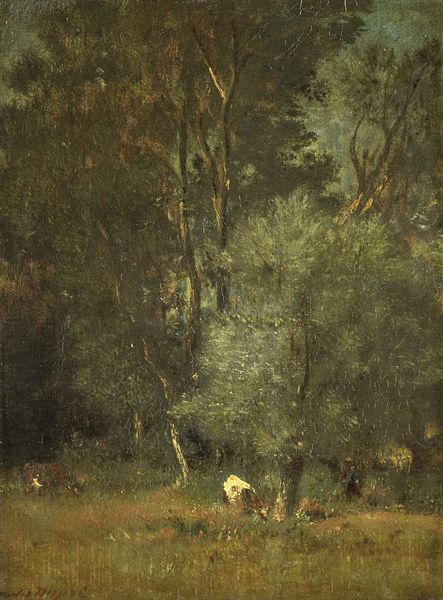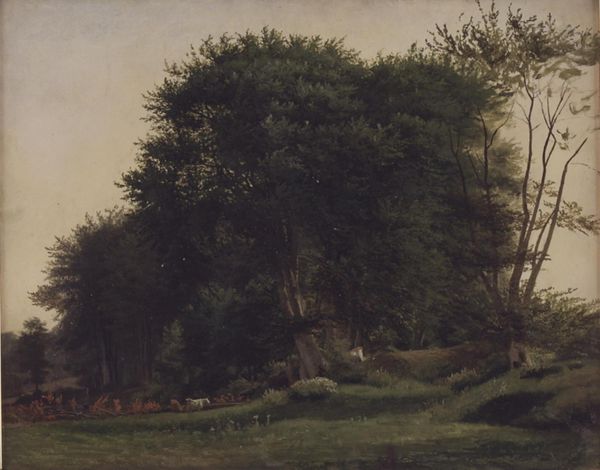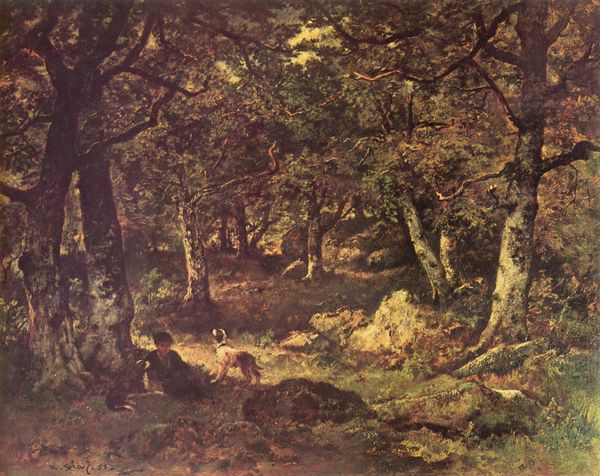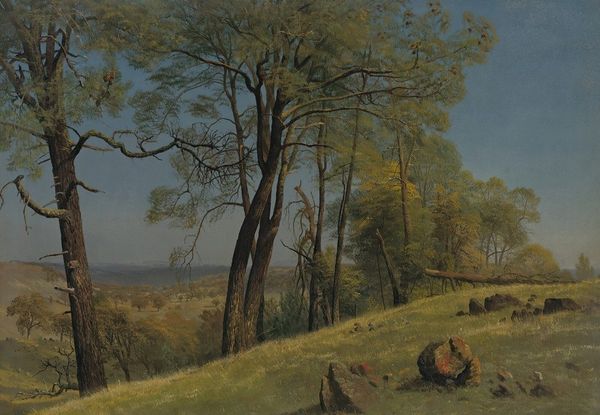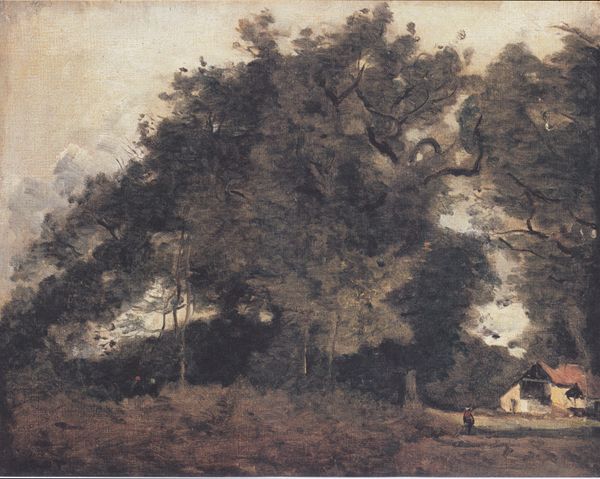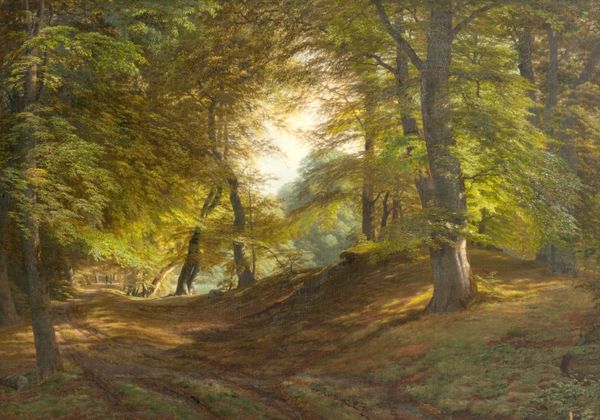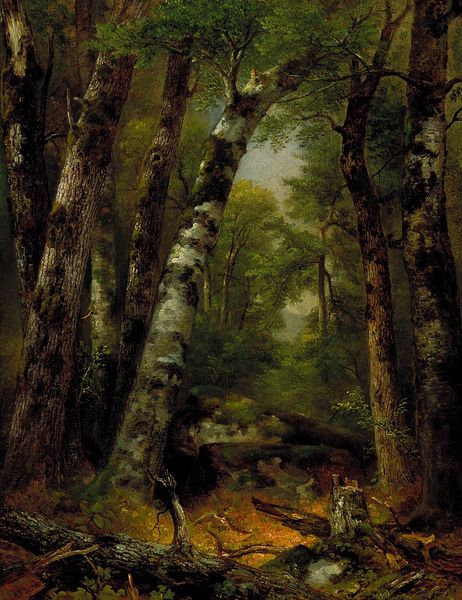
Dimensions: 69 x 89 cm
Copyright: Public domain
Curator: Let’s spend a few moments with Gustave Courbet's "Landscape with Tree," painted around 1868. It’s oil on canvas and really captures a specific, grounded sense of place. Editor: There's something wonderfully melancholic about it. The way that solitary tree dominates the foreground...it almost feels like a portrait. I wonder, what specific locale prompted such careful observation? Curator: Well, Courbet was really pushing back against idealized landscapes, you know? This was part of his realist agenda—no allegorical baggage, just the observable world rendered as honestly as possible. You can practically smell the earth, feel the dampness in the air. Editor: I’m also fascinated by how Courbet's radical realism extended to his paint handling, that directness of mark and facture. I'm curious about his methods, what kind of supports he favors for this plein-air studies and how this raw presentation challenged artistic convention in 1868. Curator: Precisely! It's like he's inviting you to consider the labor involved. There's a certain earthiness to Courbet that links directly to the democratic ideals bubbling up then, where the 'ordinary' becomes sublime, isn't it marvelous? But let's face it, those broken colors in the distance—is there also, perhaps, just a bit of Romantic yearning in there, too? A longing for something beyond the purely factual? Editor: That romantic glimmer might come from how Courbet worked with his paints, but mostly from the public expectation toward landscapes, at least. His ability to manipulate oil to build texture—I am compelled by his technique which blends brushwork and possibly the use of palette knife or sponges. The facture itself makes you consider the artistic process as raw materials meeting technique. Curator: It certainly provides a powerful reminder that beauty isn't always about polish, or even finesse. And that, ultimately, our connections with these natural settings is inextricably tied to who we are—or to who we choose to be. Editor: So it does, which shows how radical art often returns us, renewed, to both our physical and social realities, I shall revisit such earthy views later.
Comments
No comments
Be the first to comment and join the conversation on the ultimate creative platform.
